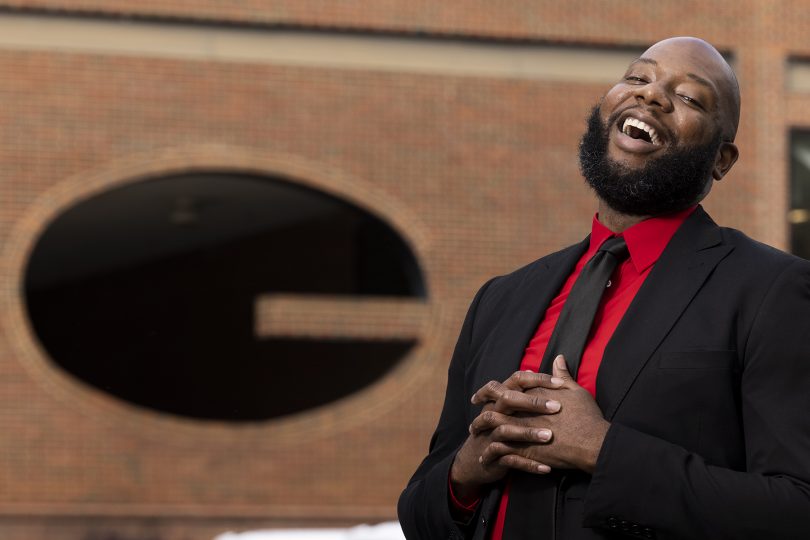If you haven’t heard from Donald Coleman and the Department of Student Transitions, you will.
Coleman serves as the director of the new department in the Division of Student Affairs and is looking to make connections across campus.
“We’re budding; we’re a growing department,” he said. “We’re looking to expand services for students in their transitional periods. If there are gaps, we want to create and collaborate on solutions,” he said.
As a first-generation college student himself, Coleman said he has a “deep passion for student transition.” In fact, he’s a UGA student himself, pursuing a Doctor of Education degree in student affairs leadership.
“It’s important to understand how vital it is for students to be connected, in terms of retention and feeling that sense of belonging,” he said.
Taking on a new role
Coleman came to UGA from Kennesaw State University, where he served as the director of orientation and the director of orientation and transition programs. In his role at UGA, he works with all students during transition periods, including underrepresented, rural, first-generation, transfer, sophomores, out-of-state and other underserved student populations at both the undergraduate and graduate level in an effort to expand services and support to fit their unique needs.
“We look at what it means to have them connect to the university before they even start their first week of school,” he said. “I get a lot of joy out of that in terms of making sure students are connected and feel that sense of belonging at the University of Georgia.”
Building a new department
Not only did Coleman start a new job at UGA, he also started a new department within the Division of Student Affairs. The Department of Student Transitions, which started in July 2020, provides dedicated support for key times of student transition, including entry into the university, development of educational pathways and fields of study, changes in residential status or funding, and preparation for future study or work following graduation.
The goal is to help students connect to campus resources, learn strategies to effectively navigate their collegiate experience and provide various transition programming opportunities. Programs like Dawg Camp and activities that are part of Welcome UGA all help students learn about their university.
“Everyone has an underlying concern for the success of students, and we’re looking to be a hub for connecting all of the things happening on campus,” he said.
The department was birthed out of UGA’s 2025 Strategic Plan as an opportunity to scale up existing programs and make them more accessible. It’s also an opportunity to reimagine other areas of transition.
“One success was the recognition that this department was needed and bringing it to fruition,” he said.
Coleman has been spending quite a bit of time meeting with faculty, staff and student leaders to learn what resources are available and how he and his department can better promote them. One area he wants to look at in the future is the sophomore experience. With so much focus on starting school and then what comes after graduating, Coleman wants to make sure students are just as supported during those in-between years.
“The exciting part is being able to use my own experience,” he said.
Coleman counts the willingness of people across campus to meet with him as an early success for his department. Those meetings have already led to collaborations and sharing of resources that can help students during points of transition.
“I think that having people in the same room thinking about transitional pathways for students and look at them with a holistic view will be very important,” he said.
Outside of work, Coleman—a self-proclaimed foodie—enjoys trying new restaurants and exploring waterfalls across the state. He also occasionally joins podcasts focused on higher education as a guest speaker.
But in addition to finishing his own postgraduate degree, Coleman’s main goal is to watch his new department grow.








